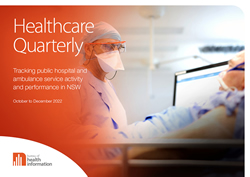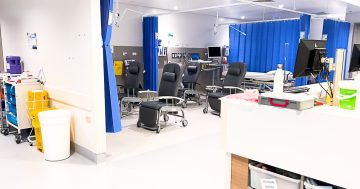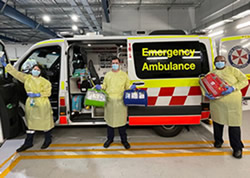 NSW public hospitals improved the timeliness of emergency care for the second quarter in a row according to the latest Bureau of Health Information (BHI) report.
NSW public hospitals improved the timeliness of emergency care for the second quarter in a row according to the latest Bureau of Health Information (BHI) report.
Deputy Secretary of NSW Health, Matthew Daly said the BHI’s Healthcare Quarterly report (October – December 2022) showed emergency department (ED) wait times improved during the final quarter of 2022, as the fourth wave of COVID-19 reached its peak.
Professor Daly said there were more than 790,000 attendances at NSW EDs throughout the final quarter of 2022, with a record number in the most critical categories.
“Despite the huge volume of patients, the proportion of all ED patients who started their treatment on time and the number of patients whose care was transferred from paramedics to ED staff within 30 minutes improved,” Prof Daly said.
“For the second quarter in a row we are seeing some positive signs in our results, which is testament to our dedicated staff and their outstanding performance through another challenging quarter.”
He said recent reports from the Australian Institute of Health and Welfare and the Report on Government Services confirmed NSW outperformed all other States when it came to timeliness of care in EDs, despite the significant impacts of the COVID-19 pandemic.
Prof Daly said it was also of note that almost half of all presentations to NSW EDs in the October to December 2022 quarter were less serious cases, with more than 370,000 in the semi-urgent and non-urgent categories.
“We urge the community to please support our hardworking frontline staff by saving our emergency departments and ambulances for saving lives,” the Deputy Secretary said.
“Our emergency departments will always prioritise critically ill and seriously unwell patients first, which unfortunately can result in less urgent cases waiting longer.”
He said NSW Health performed more than 54,000 elective surgeries and public hospitals performed 25,000 emergency surgeries during the quarter.
Prof Daly said almost all urgent elective procedures (99 per cent) continued to be performed on time.
“We remain focused on addressing the minority of people on the list whose surgeries are overdue, particularly those in the non-urgent category who were most impacted by the temporary suspensions during the pandemic response,” he said.
“Thanks to the remarkable efforts of our staff we brought the number of overdue surgeries down by nine per cent from July to December 2022 and we continue to make every effort to bring that number right down.”
The BHI’s 31-page Report can be accessed at this PS News link.











